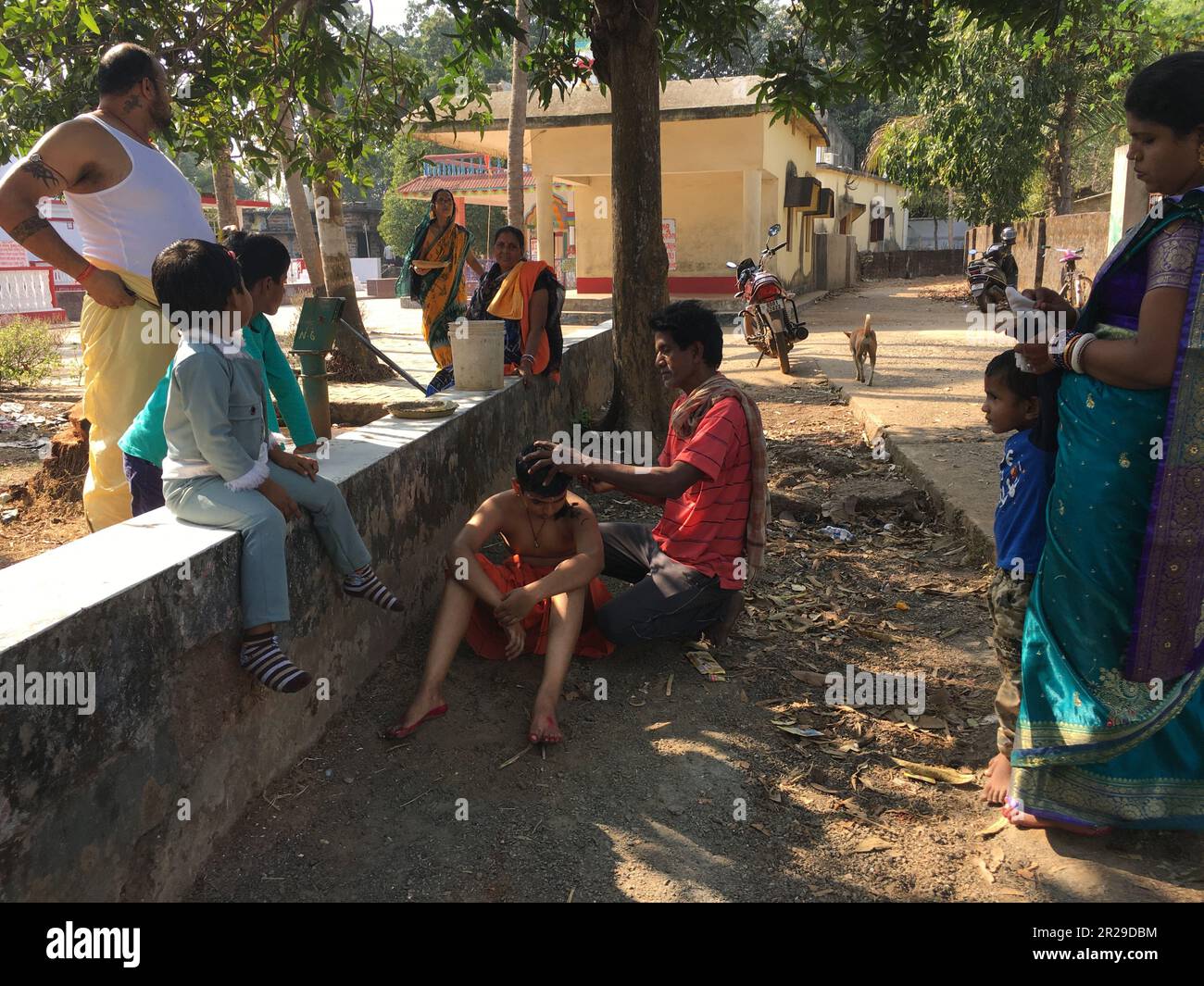Hindu brahmin Upanayana or The sacred thread ceremony. His entry into the Brahmacharya stage of life.

Image details
Contributor:
MANORANJAN MISHRA / Alamy Stock PhotoImage ID:
2R29DBMFile size:
34.9 MB (2 MB Compressed download)Releases:
Model - yes | Property - noDo I need a release?Dimensions:
4032 x 3024 px | 34.1 x 25.6 cm | 13.4 x 10.1 inches | 300dpiDate taken:
26 January 2023Location:
Odisha, IndiaMore information:
Upanayana became an elaborate ceremony, that includes rituals involving the family, the child and the teacher. A boy receives during this ceremony a sacred thread called Yajñopaveetam that he wears. The Yajñopavita ceremony announces that the child had entered into formal education. In the modern era, the Upanayana rite of passage is open to anyone at any age.Upanayana follows Vidyāraṃbhaṃ, the previous rite of passage. Vidyāraṃbhaṃ became an intermediary samskara following the evolution in writing and language. Vidyāraṃbhaṃ now marked the beginning of primary education or literacy while Upanayana went on to refer to spiritual education. Upanayana can also take place at the student's home for those who are home-schooled. Ceremonial bhiksha as one of the rituals during Upanayana became important, attaining sizeable proportions. The actual initiation occurred during the recitation of the Gayatri Mantra. The spiritual birth would take place four days after the initial Upanayana rituals. It was then that the last ritual was performed, the Medhajanana. The Samavartanam or convocation ritual marked the end of the course. The Upanayana became a permanent feature around the Upanisadic period.